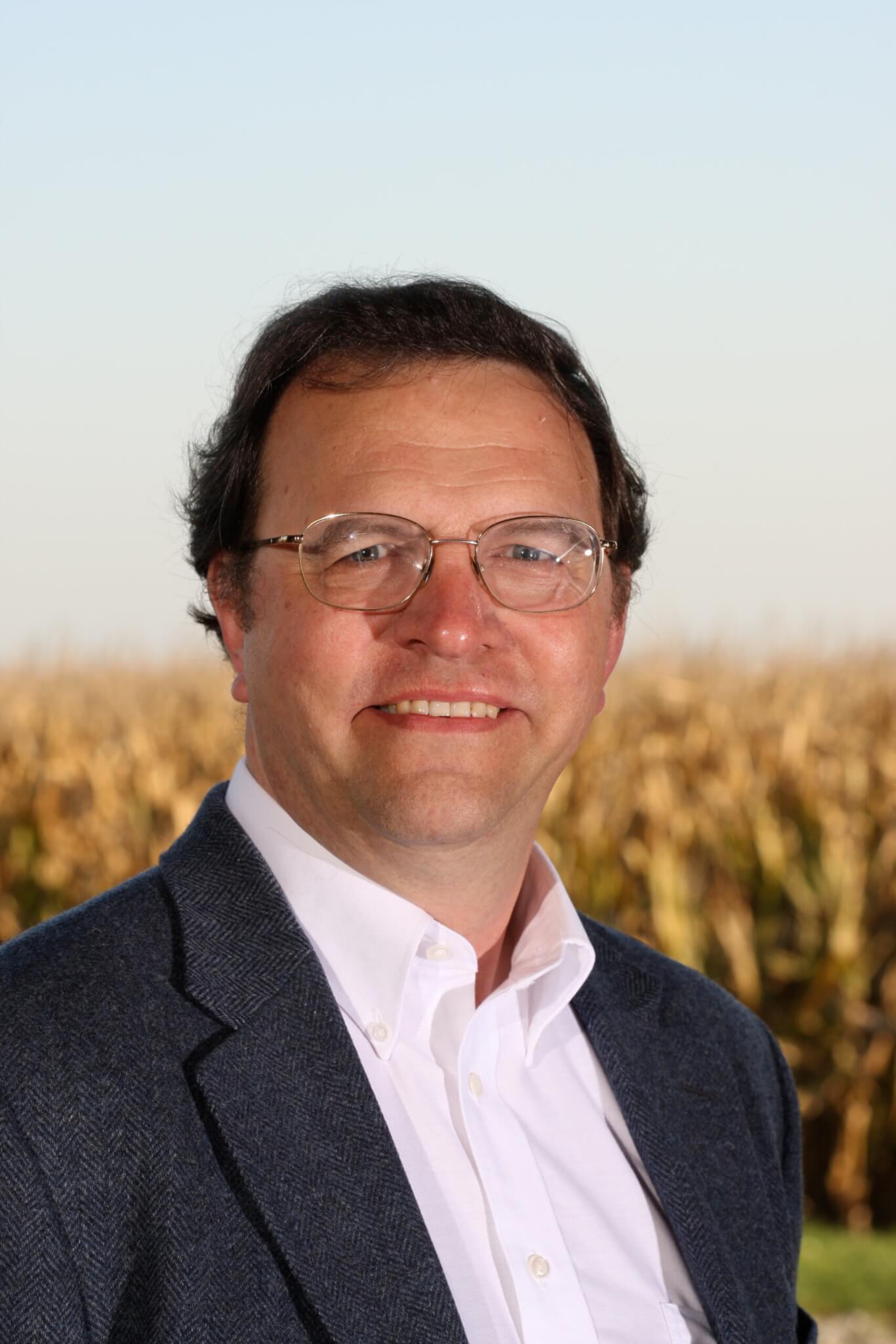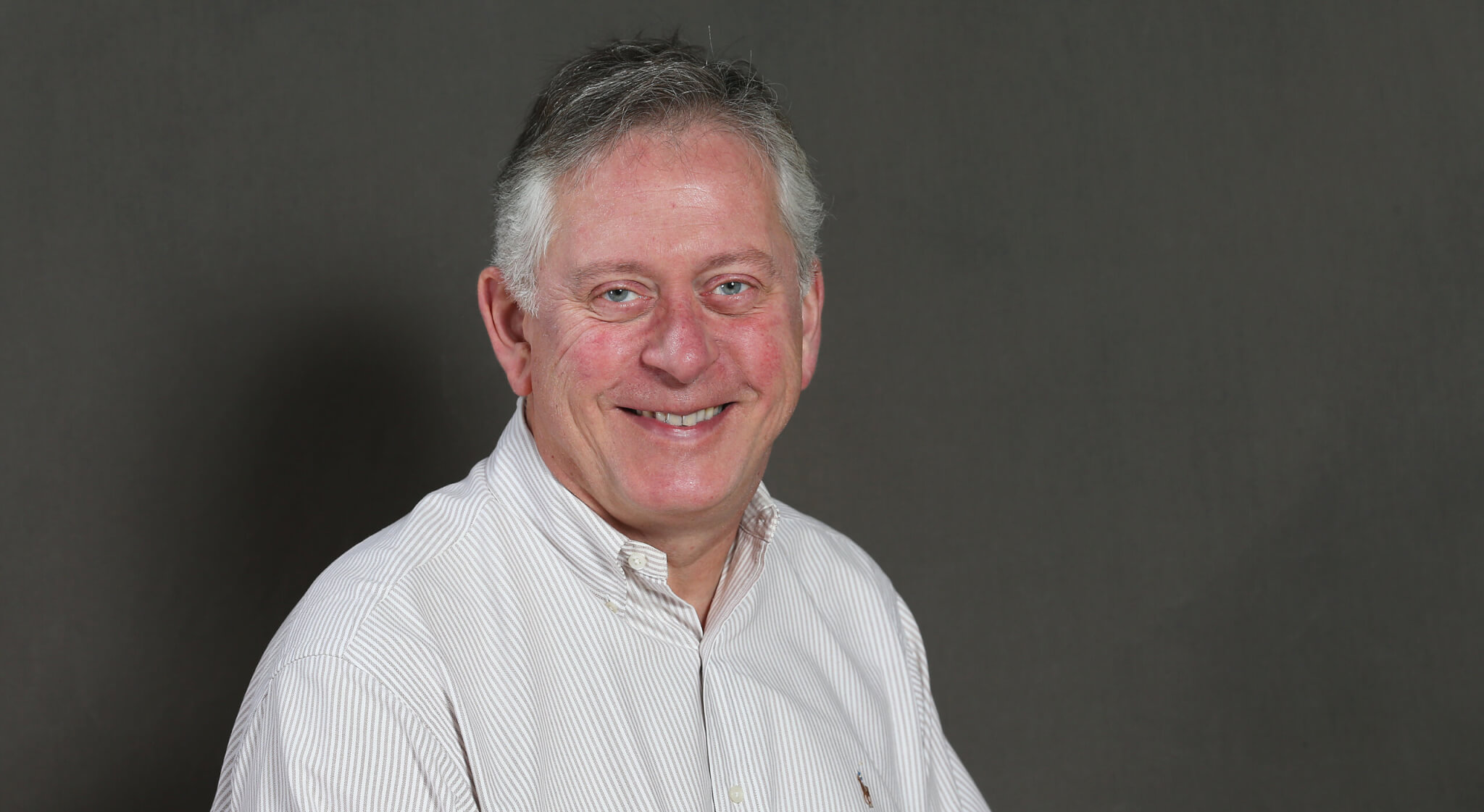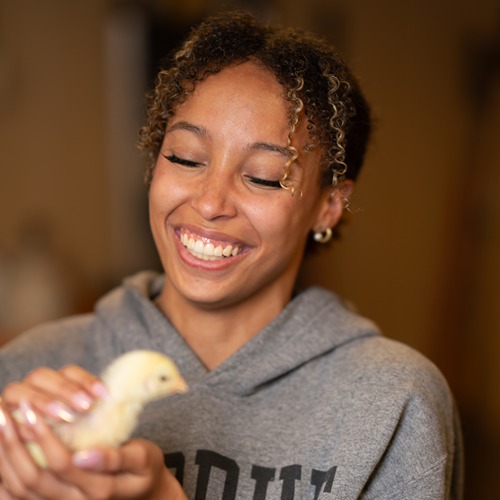How the hybrid teaching model is succeeding
The hybrid model was adopted by Purdue to de-densify campus and allow students to return. In The College of Agriculture there are already examples of how a teaching model that incorporates online and in-person instruction is succeeding.
taking engagement to heart
It’s the first time in 30 years agricultural economics professor Larry DeBoer isn’t wearing a tie to class. In an unprecedented time, filled with countless firsts, DeBoer has opted for a more casual style this semester.
“I figured if I have a cloth mask tied around my face I don’t need to further constrain myself with something tied around my neck,” DeBoer said.
Like every campus community member, DeBoer faces a semester full of challenges as campus adapts to COVID-19 restrictions and faculty adjust to a hybrid teaching model that involves both in-person and online instruction.
DeBoer’s macroeconomics course is one of many being taught both in-person and online in efforts to de-densify campus and classrooms. The course has over 450 students, which means he instructs an online section and three in-person sections.
While successfully imparting course knowledge is DeBoer’s primary objective, he knows a vital part of this semester includes finding ways to engage students.
"You have to take into consideration people’s circumstances. I heard from a student recently who doesn’t have broadband. Last semester, I heard from another who is trying to take this class from a café in Hong Kong."
“I walk into class and it’s such a novel experience because everyone is sitting far apart and it’s completely silent,” DeBoer said. “And then there are the online students who aren’t physically here. I really took to heart the challenge of how we can best, safely serve these students while also fostering interaction.”
DeBoer has incorporated several innovative classroom techniques that are proving successful.
DeBoer has set up a series of chat threads where students can come to discuss different topics. He even has one unrelated to the course where students can share their campus experiences.
“To be fair, I’m the only one posting on there right now, but I keep trying,” DeBoer said.
The course has fewer lectures this year, DeBoer added, which means he has to be strategic in considering what material is most valuable for students to engage with during lecture. Placing the onus on students to heavily prepare for lectures, DeBoer jumps right into the material past students have found most challenging.
“There are only eight unique lectures for the entire semester so you need to really make them count,” he continued. “This means, for example, instead of talking about what a demand curve looks like, we talk about how you apply that information analytically.”

Of course, none of this matters if students can’t access the materials. Broadband access is not a given in Indiana and other places, and DeBoer said locations as close as Rossville struggle with access. “You have to take into consideration people’s circumstances. I heard from a student recently who doesn’t have broadband. Last semester, I heard from another who is trying to take this class from a café in Hong Kong.”
For this reason, DeBoer is also offering his lectures in podcast format, which provide smaller files to download. This means back-editing when he makes a mistake, a process that can take up to four times longer than standard delivery of a lecture.
DeBoer also uses several other techniques to foster engagement, including offering online office hours and eliminating exams in favor of projects, a move that encourages more collaboration and discussion amongst students. So far, he added, the most rewarding part of the semester has been witnessing students going to impressive lengths to work together.
“I provide all these discussion threads, but students decided they wanted to go above and beyond and organize these study groups outside of that, which I think just shows impressive initiative.”
“never seen anything like this”
“I’m just a complete amateur at this online teaching thing,” Clint Chapple, Distinguished Professor of Biochemistry, said.
This semester, Chapple is teaching Biochemistry 100, and while he may be new to the online classroom, his techniques are proving anything but amateur.
Biochemistry 100 is an introductory class for freshman that allows students to get a feel for the major. It’s unusual for biochemistry departments to have such a course, Chapple said; typically students don’t begin to study actual biochemistry until their junior year. Teaching it is a responsibility he takes very seriously.
“Some students take this class and realize that this major isn’t for them,” Chapple said. “Others come to me and say I know I’m in exactly the right place.”

Connecting personally with and supporting his students has always been a key component of teaching for Chapple, something he finds rewarding and his students find helpful as they navigate their first year. To foster a similar environment this semester, Chapple decided to host live sessions where he talks to students and answers questions. While he’s teaching the course asynchronously, he felt this offers a casual, low-stakes environment to get to know his students and share more information about the course.
Out of Chapple’s 80 students, 50 attended his first session.
“I just wanted to talk to them in a low-key way about my teaching philosophy, how things were going to go in the class and how it stinks they didn’t get a proper high school graduation,” he said.
Chapple said the students fired off questions in the chat, responding to him and each other. He also saw students start to connect and organize independent groups, all from his first live session.
“Students are used to interacting in this manner,” Chapple added. “They’re sending hundreds of texts a day and posting their stories on Instagram. What I saw was a bunch of students more comfortable posting on a chat than putting their hands up. If this helps them ask questions that they might not ask in class, it can only help them succeed in the course. I pride myself on classroom discussion, but I’ve never seen anything like this.”






